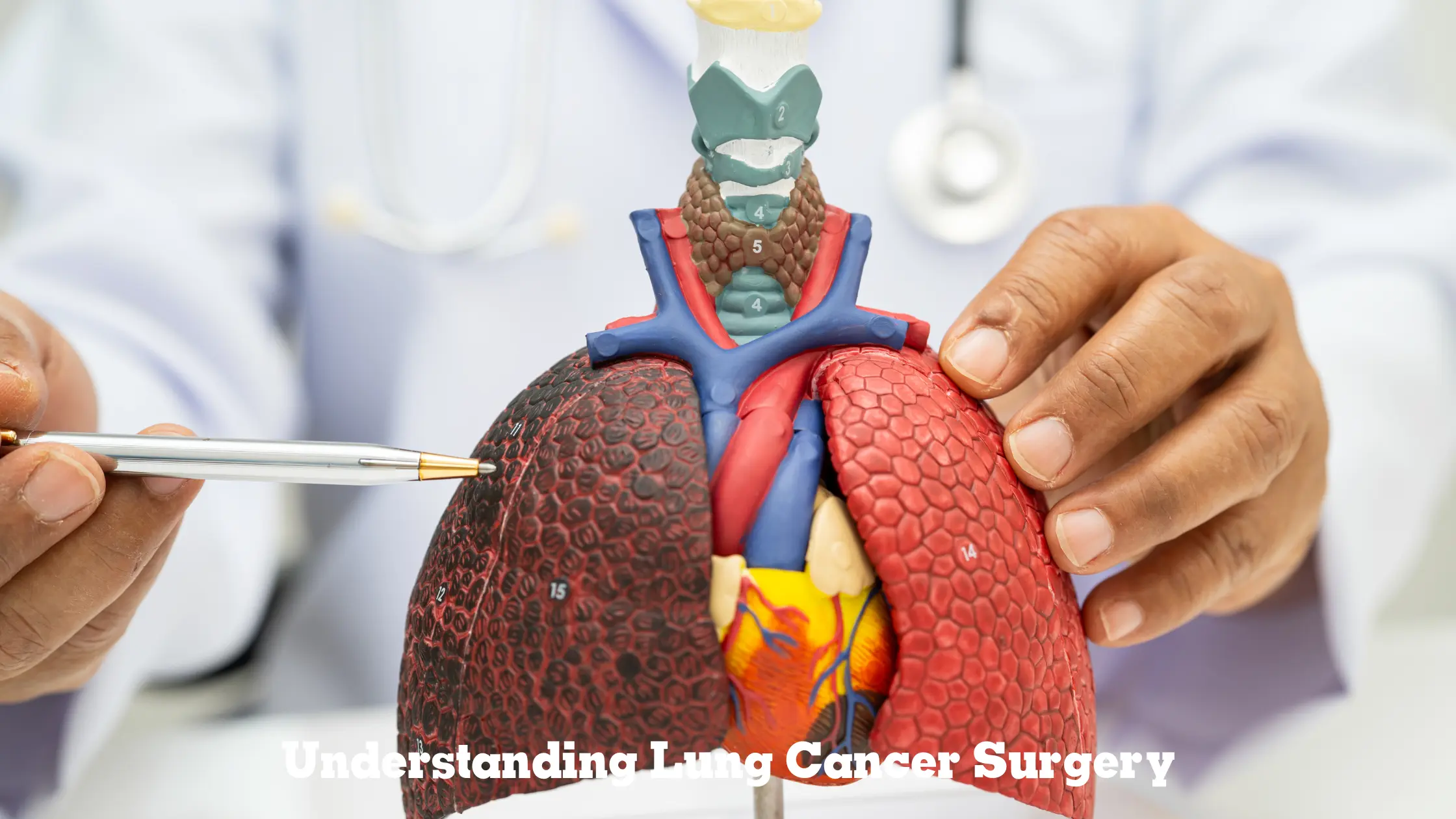Lung Cancer Surgery: Treatment Options & Recovery Guide

Lung cancer is one of the most common and deadly cancers worldwide, with millions of people affected each year. The disease is often diagnosed in its later stages, making early detection and timely treatment essential for better outcomes. One of the most effective options for managing lung cancer is surgery. In this blog, we will explore the role of lung cancer surgery, what it entails, and why Noida is emerging as a hub for the best lung cancer treatment.
What is Lung Cancer Surgery?
Lung cancer surgery refers to the medical procedure where a part or all of the lungs are removed to eliminate cancerous growths. The primary goal of the surgery is to remove as much of the cancerous tissue as possible to prevent the spread of cancer and improve survival rates. The type of surgery performed depends on various factors, including the size and location of the tumor, the stage of cancer, and the patient’s overall health.
There are several types of lung cancer surgeries, including:
Lobectomy: Removal of one lobe of the lung. This is the most common surgical procedure for lung cancer.
Pneumonectomy: Removal of an entire lung.
Segmentectomy or Wedge Resection: Removal of a small portion of the lung that contains the tumor.
Video-Assisted Thoracoscopic Surgery (VATS): A minimally invasive approach where small incisions are made, and a camera is used to guide the surgeon in removing the tumor.
Each surgery is tailored to the patient's unique condition, and your oncologist will provide personalized recommendations based on the tumor’s stage and location.
How is Lung Cancer Surgery Performed?
Lung cancer surgery typically involves a combination of techniques, including pre-surgical evaluations, anesthesia, and post-operative care.
Pre-Surgical Evaluation: Before surgery, patients undergo a series of tests, including CT scans, PET scans, and lung function tests, to assess the size and location of the tumor, as well as the overall health of the lungs.
Anesthesia: General anesthesia is administered to ensure that the patient remains unconscious and pain-free during the surgery.
Surgical Procedure: Depending on the type of surgery, the surgeon will make an incision in the chest, carefully remove the cancerous tissue, and close the incision.
Recovery and Post-Operative Care: After surgery, patients are closely monitored in the hospital. Recovery times vary, but most people can return to normal activities after several weeks or months. Post-operative treatments like chemotherapy or radiation therapy may also be recommended depending on the cancer’s stage.
The Importance of Early Detection
Early-stage lung cancer, where the tumor is confined to one area, offers the best chance for successful surgery and long-term survival. However, lung cancer often remains asymptomatic in its early stages, which is why regular checkups, especially for those with a history of smoking or a family history of cancer, are critical.
Advancements in imaging techniques, such as low-dose CT scans, have made it possible to detect lung cancer at an earlier, more treatable stage. As a result, surgery becomes a more viable option for many patients.
Why Noida is a Leading Destination for Lung Cancer Treatment
When it comes to receiving the best lung cancer treatment in Noida, the city has become a recognized medical hub in India. With state-of-the-art medical facilities, highly skilled oncologists, and advanced surgical techniques, Noida offers a comprehensive approach to lung cancer treatment.
World-Class Medical Facilities
Noida is home to some of the best hospitals and cancer centers, equipped with the latest technologies in cancer diagnosis and treatment. These facilities provide world-class care, including advanced imaging, minimally invasive surgeries, and cutting-edge radiation therapy.
Highly Experienced Oncologists and Surgeons
The city boasts a network of leading oncologists and surgeons specializing in lung cancer treatment. These experts have years of experience and are trained in the latest surgical techniques, ensuring that patients receive the best possible care.
Affordability and Accessibility
While top-tier healthcare services are often associated with high costs, Noida offers affordable treatment options without compromising on quality. Patients from across the country and even abroad travel to Noida to receive comprehensive lung cancer care. The city’s proximity to Delhi further enhances its accessibility, making it a convenient destination for treatment.
Holistic Treatment Approach
Noida’s cancer centers follow a holistic approach, where the treatment plan is customized to each patient’s specific needs. The city not only focuses on surgery but also integrates other therapeutic options such as chemotherapy, immunotherapy, and palliative care to ensure the best possible outcomes.
Post-Surgery Care: What to Expect
Post-surgery, patients are closely monitored to ensure there are no complications such as infection or issues with lung function. The recovery period can vary from person to person, but it is crucial for patients to follow the post-operative care instructions provided by their healthcare team.
In addition to regular follow-up visits, patients may need to undergo further treatments like chemotherapy or radiation therapy to eliminate any remaining cancer cells and prevent recurrence. A healthy lifestyle, including a balanced diet and physical activity, can also play an important role in post-surgery recovery and overall well-being.
Conclusion
Lung cancer surgery is one of the most effective ways to manage and treat the disease. If you or a loved one has been diagnosed with lung cancer, it is essential to seek treatment as soon as possible. Noida offers some of the best lung cancer treatment options available, with world-class facilities, experienced specialists, and a comprehensive approach to care.
If you're looking for the best lung cancer treatment in Noida, it is crucial to consult with an experienced oncologist who can guide you through the treatment process and recommend the most effective treatment plan tailored to your needs. Early detection and timely intervention are key to achieving the best possible outcome, so don’t hesitate to take the first step toward treatment today.










